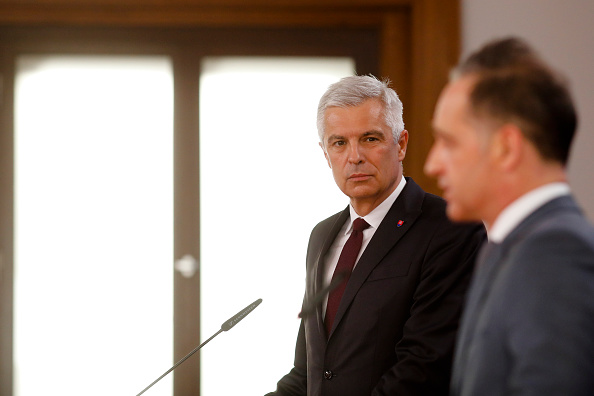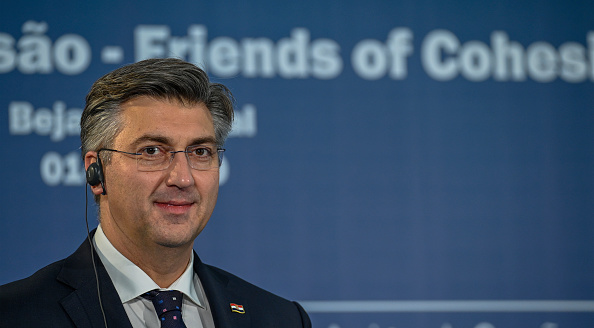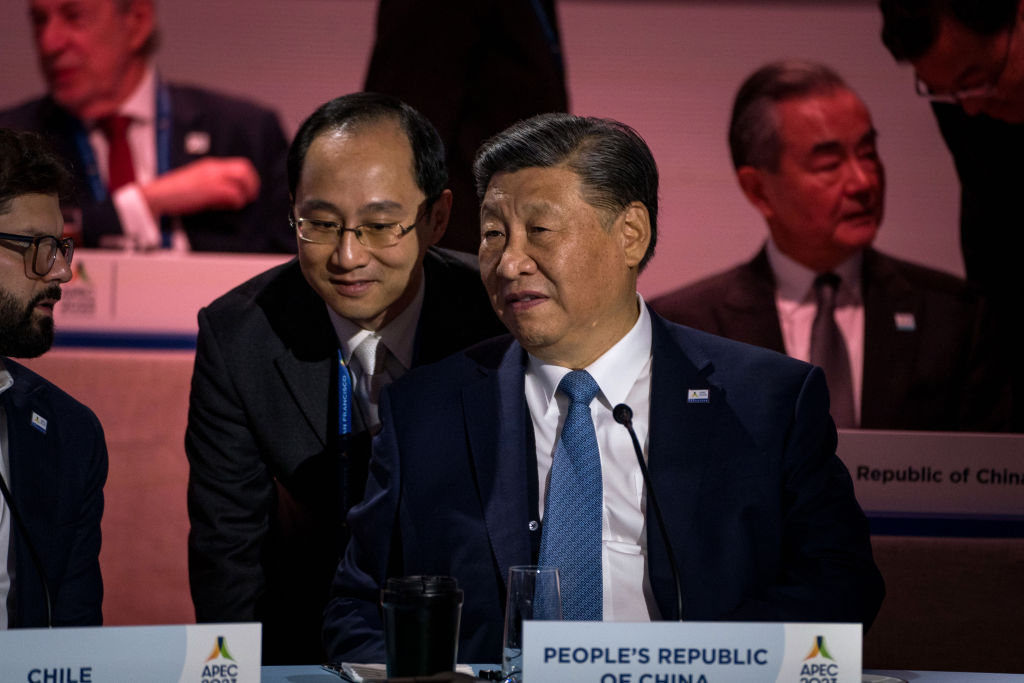The election of PM Robert Fico’s ally Peter Pellegrini as Slovakia’s president means Fico now faces a much easier path taking Slovakia in his preferred direction.
The result, with 53 per cent for Pellegrini and 47 for Ivan Korčok, was more lopsided than polls’ prediction of a nearly even result.
An Ipsos model for Slovakia’s Denník N had suggested higher turnout was likely to favour Pellegrini. In the event, the turnout, 61.1 per cent of voters, dwarfed previous elections: up from 41.8% in the second round in 2019.
In a contest fought largely about Ukraine, for which Fico withdrew Slovakia’s previously substantial military support, Pellegrini presented himself as a peace candidate who would urge Ukraine to the negotiating table with Russia.
In his victory speech, Pellegrini promised “to ensure that Slovakia remains on the side of peace and not on the side of war”.
When inaugurated on June 15, Pellegrini replaces outgoing President Zuzana Čaputová–who like Korčok strongly supports Ukraine, and announced in June 2023 she would not stand again ‘for personal reasons’.
Having an ally replace Čaputová will now “embolden Fico to continue with his controversial policy agenda”, Teneo’s Andrius Tursa told Brussels Signal.
Fico presented the election as a referendum on his Ukraine policy, calling Korčok a “warmonger”, who will “support everything the West tells him without hesitation, including dragging Slovakia into the war”.
Pellegrini, despite keeping a low profile and not participating in many debates, “benefited from strong support of Smer-SD and PM Fico, SNS, We Are Family, and a number of unsuccessful presidential hopefuls,” argues analyst Metodi Tzanov.
On the other side, a weakened opposition “failed to provide sufficient support” to Korčok, Tzanov says.
Pellegrini also won back many districts where Korčok finished ahead in the first round.
Apart from the liberal stronghold of the capital, Bratislava, and its surroundings, Korčok in the run-off “won only in the second largest city, Kosice, and three other districts in the north and the east – Dolny Kubin, Poprad and Presov,” Tzanov adds.
Besides Ukraine, the election comes as Fico seeks to amend the country’s penal code and abolish the public broadcaster – both moves Čaputová has opposed.
Slovakia’s presidency is largely ceremonial, but the head of state has powers to veto laws and appoint senior judges. Čaputová has used her formal powers and the visibility of her office to constrain Fico’s policy agenda – something Pellegrini is unlikely to do.
“Traditionally, the president’s institution in Slovakia holds the highest public trust”, with the office a bully pulpit, says Tursa.
On February 8, Fico’s parliamentary majority voted to eliminate the country’s office of special prosecutor, moving responsibility for serious crimes of graft, organised crime, and extremism to regional prosecutors instead.
Čaputová has challenged the new penal code in the Constitutional Court, while also condemning Fico’s decision to replace the RTVS public broadcaster with a new organisation.
Culture minister Martina Šimkovičová, who drafted the government’s plans for a new broadcaster, says RTVS is biassed, giving space only to mainstream views.
Widespread protests against Fico’s moves on the public broadcaster and penal code likely swayed the first round in Korčok’s favour, says Tzanov.
By the second round, however, these protests had subsided, and voters rewarded “the peace promised by Pellegrini versus the alleged warmonger Korčok”, he adds.
Without a presidential counterweight constraining Fico’s policy proposals, it is now more likely that Fico will face “clash” and “countermeasures” from Brussels, says New York public affairs firm B&K Agency.
The penal code reforms in particular could, in the eyes of the European Commission, “justify actions ranging from infringement proceedings to the activation of the conditionality mechanism on the rule of law”, says B&K.
Both presidential contenders were well-known political figures, reinforcing the election as a referendum of the future of Slovakia: Korčok’s vision of a Bratislava closer to Brussels, and Pellegrini’s of a Slovakia sceptical of the EU and war in Ukraine.
Pellegrini is currently speaker of Slovakia’s parliament, and was PM from 2018-2020.
Korčok was foreign minister from 2020-2022, and a career diplomat for 28 years before that.
Pellegrini’s victory could also realign Slovakian party politics, favouring Fico.
Pellegrini leads the social democratic Hlas (‘Voice’)-SD party, which split from Fico’s Smer-SD in 2020 but governs in coalition with it.
As president, Pellegrini may need to step down as Hlas-SD’s head.
This could mean that his party, lacking a clear leader, could potentially reintegrate into Fico’s, further boosting the PM’s position in parliament, says Tursa.
Given Fico’s Eurosceptic views, it may have been unsurprising that one of the first governments to offer Pellegrini congratulations was Viktor Orbán’s neighbouring Hungary.
“What a pleasure to hear this!” wrote Orbán’s political director Balázs Orbán on Twitter/X.
In a picturesque final touch, voting was extended nationwide by five minutes on April 6 after nuns accidentally locked one of the polling stations.





